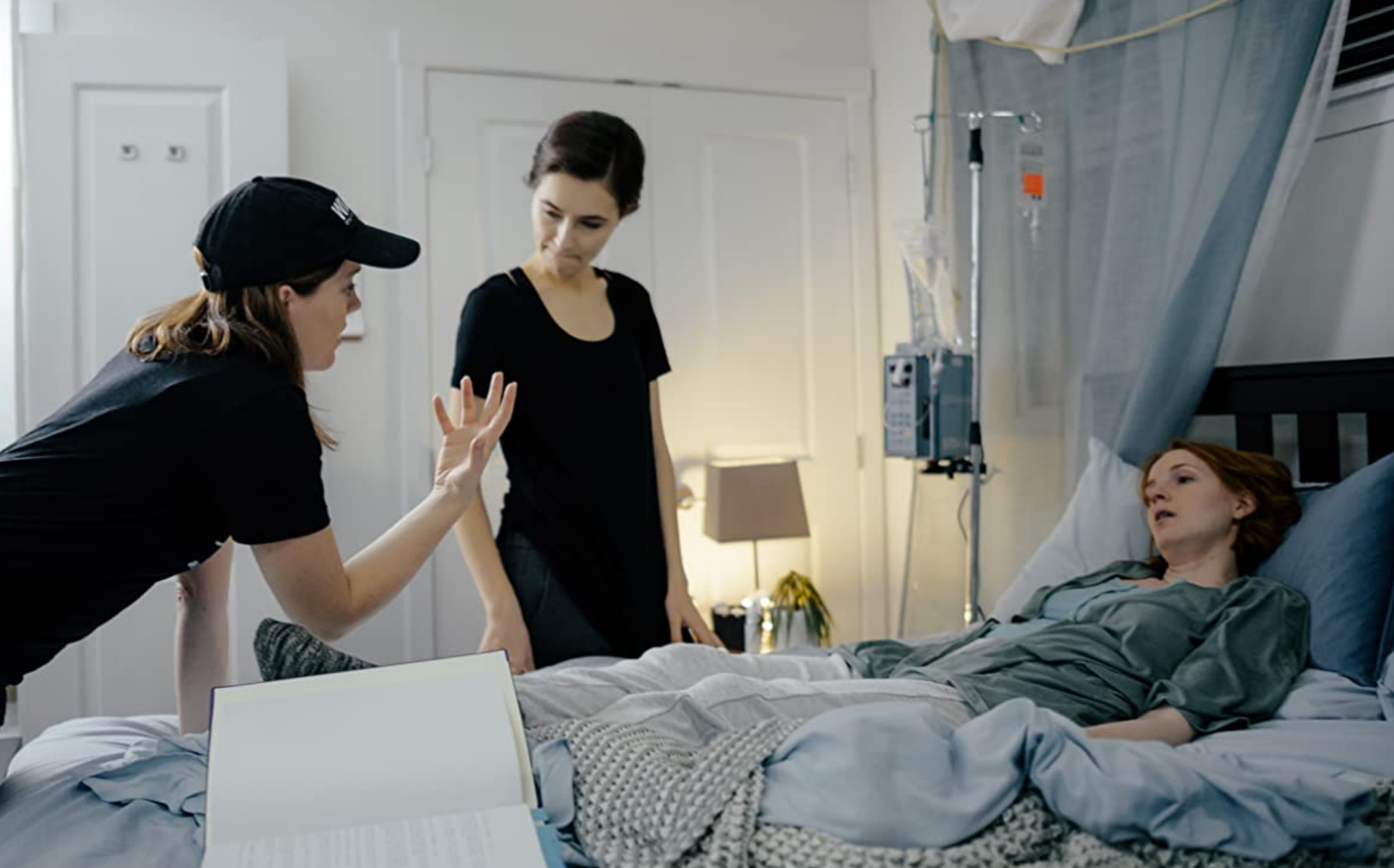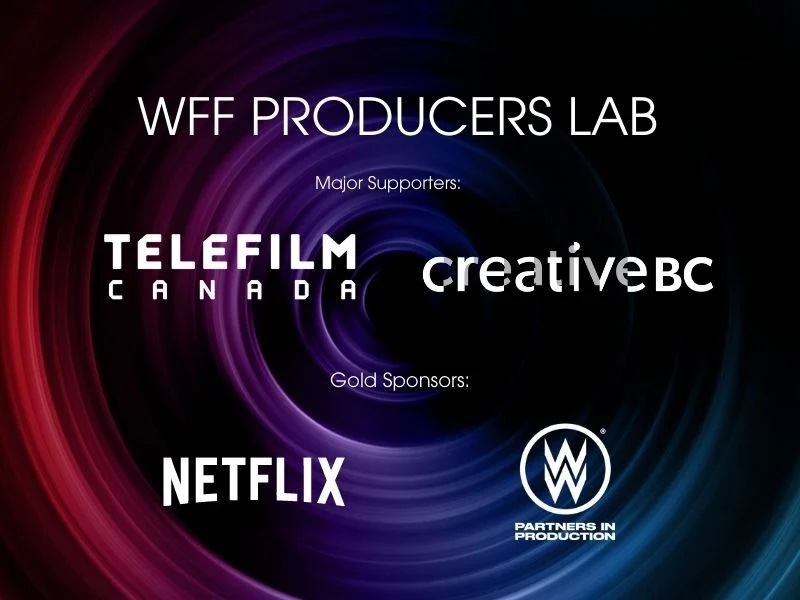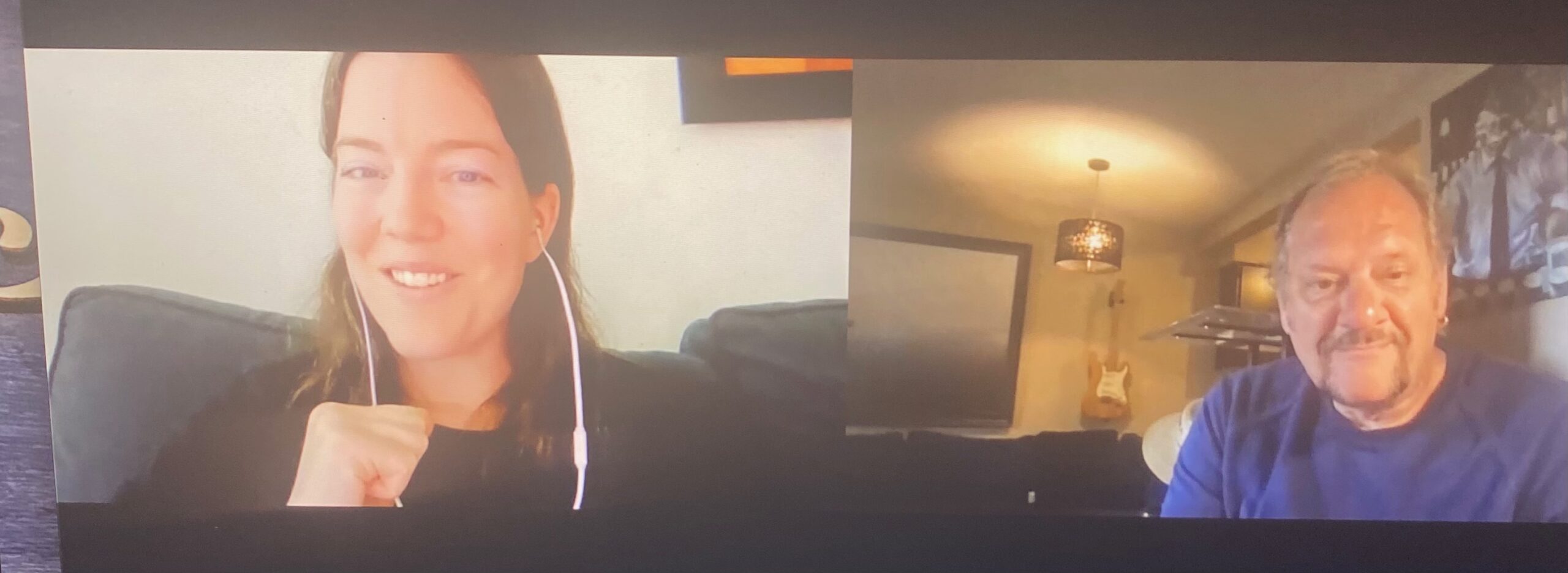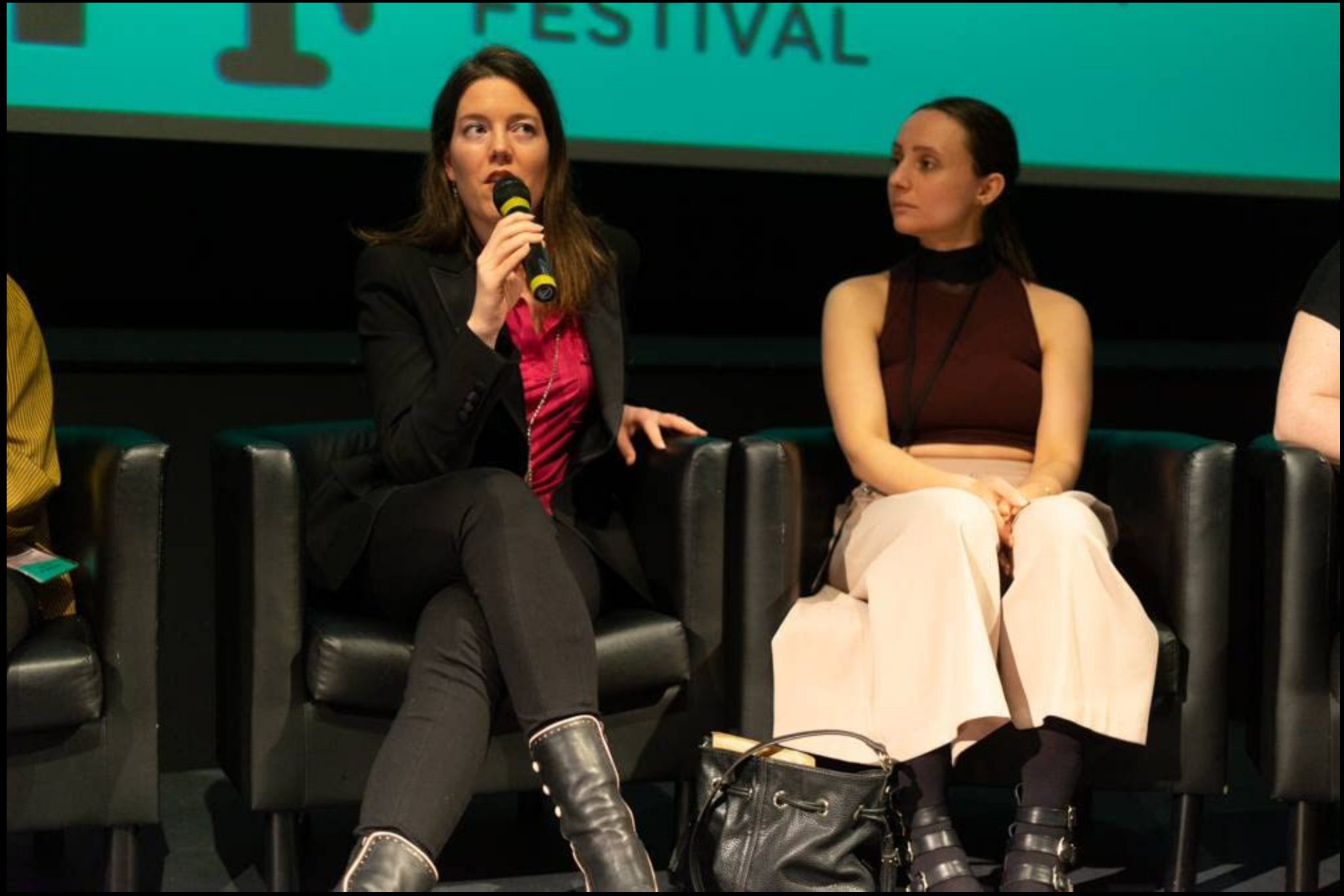Does the 20,000 hour rule apply to filmmaking? If you’re ambitious enough, you can learn it all by doing and working with others in the industry that might see a shine in you, even on your worst days. They’ll mentor you, inspire you and help you to chart your course. Character, trust… continuity means a lot in this industry and if you don’t have them, you need to question your motivation. The film industry is ever evolving, from the films being made, to the writers and directors creating them. The industry is shifting, diversity has finally boarded the ship on route to parity island. It’s filled with people seeking agency as they navigate unknown waters. Don’t look back until you arrive at your destination – then tell others how you did it.
In a time when sharing certain things can get you arrested, information has always been the gift that keeps on giving. I truly feel like I’ve found a buried treasure of inspiration, tenacity, raw ambition and pearls of wisdom after unearthing the opportunity to speak to Meeshelle Neal. She is a book author, an award-winning screenwriter, director and producer. Meeshelle is best known for directing the concept short, Sweet Release and Where Everyone Lives. She also wrote, produced and acted in Mental. Meeshelle was recently awarded Best Female Filmmaker for her work on Sweet Release in the Toronto International Nollywood Film Festival where the short also took home Best LGBTQ Film. In addition, she also won Best Director for Where Everyone Lives in the Berlin Indie Film Festival.
She is mentored by well-respected director / producer Gary Harvey and has apprenticed with him on Hudson & Rex (Citytv), Welcome To Christmas (Hallmark) & Tiny Pretty Things (Netflix).
In addition to working in film, Meeshelle is the published author of the Betwixt trilogy. She also has 2 amazing projects that have been selected for the Whistler Producers Lab and has shattered the glass ceiling by being the first writer to have two projects accepted into the Producers Lab. She will be working with Producer, Alexandra Caulfield on BETWIXT: THE CALL OF THE VOID and Producer Heidi Lasi on SWEET RELEASE. Her ability to strike when the iron is hot is something Meeshelle does before lunch. I’m still looking for my missing sock and she’s already written the next best chapter!
I cannot say enough great things about this Canadian jewel and her contributions to film and television. I caught up with her in Saint Johns, Newfoundland working on the set of the Hudson & Rex series. She only took a little coaxing before spilling the beans and drawing a map to the goods, we sometimes refer to as success. If you want to direct for TV, then this interview has answers nobody else is offering. Roll the tape!
HNMAG “I know that you’ve been extremely busy and have written two screenplays with producers attached for development that have also been accepted into the Whistler Producers Lab. This is a first, for the Producers Lab, how did you make that happen?”
MEESHELLE “It is amazing and I’m so grateful for it but I do have to speak to the fact that I do have 2 amazing producers attached to the projects, so it’s not just me. Somehow, in the last 5 years I’ve managed to surround myself with some really incredible people. Getting those two projects into the Whistler Producers Lab is a direct correlation to that.”
HNMAG “Do you believe that, had you not met them, you would not have these 2 projects going into the Lab?”
MEESHELLE “It’s interesting because I think that the right people for the project come around. Having made films for years, I realize that you do want the right people for the project and these 2 producers are the right people to be attached at this time. I don’t believe these projects would be where they are without them.”
HNMAG “I had read that one of the feature projects is a retelling/extension of a past short film, Sweet Release, is that correct?”
MEESHELLE “Yes, they’re both features and one of the films, Sweet Release was a concept film that did very well at festivals – winning many awards and establishing recognition. The other project is Betwixt and is an adaptation to my dark fantasy series, mostly focused on the book – The Call of the Void.”
HNMAG “Can you explain the difference between the two projects?”
MEESHELLE “In Sweet Release I wrote a short film with 2 people in the same world as the feature but it’s not related to the feature, other than the same world they find themselves in. The feature is about a pandemic… that I started writing in 2016/2017, long before we ever heard of Covid – 19. The pandemic affects the entire world, but you get trapped in this end-of-life stage, where you can’t die; nobody is dying around the world. The two people in the film are unaware of what’s going on when one of them gets trapped in the end-of-life stage and can’t get out. In the short film, I had made a conceit, where she is allowed to die, once her partner accepts the fact that she’s going to die, she can finally let go. In the feature, it delves into why this is happening and how it’s occurring and who’s behind it. In a feature, you have the time to go into that. The short film is a queer love story with a sci-fi element. I’m queer and tend to focus on queer stories. The feature is about a mother-daughter with the mother acting as a neurodivergent scientist that is faced with an impossible dilemma. She is about to release the cure the same time that her daughter contracts the disease. If she releases the cure, her daughter dies but if she doesn’t, everyone is trapped in pain.”

Meeshelle had continued to express her reasons for her writing and filmmaking passion. She’s always been a storyteller and always wanted to connect with others, break through stigmas and stereotypes in order to start a conversation. “When someone tells me that one of my books or a film made them feel seen, or they understood themselves or somebody else better – that is the gift/reward for me.”
HNMAG “You were mentored by Gary Harvey. Does he focus his teachings on the purpose of filmmaking?”
MEESHELLE “Gary’s mentorship has been more focused on TV directing and what’s required of you as a TV director. My analogy of the process is, when it’s my feature and I‘m writing/directing… I’m giving birth. When I’m directing TV, I’m the midwife and helping someone else give birth. Throughout these past years, Gary has accelerated my knowledge. Under his mentorship, he brought me in during the prep stage, which is where most of the directing is done. Through all of the prep and seeing his process, I’ve fast-tracked my own understanding of filmmaking. Gary is very efficient, he’s very smart and he’s been doing it over 25 years. I believe he’s about to direct his 300th episode on Hudson & Rex. Things tend to go sideways on a set, it always happens – Gary handles those moments with intelligence, grace and he figures out creative solutions that I then get to implement on my set. I don’t believe other directors with my level of directing credits could do that because they haven’t had the same experience that I have.”
Meeshelle continues to pay it forward as she expands on her methods of directing. “I like to think of myself as the through line. I have the overall story in my head and am editing it as I’m going. I’m shooting for the edit, I know what I’ve got and I know what I need. I have a goal when I’m on set – which is to be the calmest person there. If I’m centered, then I’m freer to come up with creative solutions in the moment.”
HNMAG “Do you practice yoga or other activities that help to maintain that calm?”
MEESHELLE “I have a daily meditation practice that I find extremely grounding and beneficial. I also do other things… I have this routine called morning pages, where I wake up and write and write, even if I am writing, ‘I have nothing to write’. I’ll write for pages, which is why the practice is called morning pages. I’ll do that every so often and it acts like a clearing out process for my head. It’s from the book called, The Artist’s Way.”
HNMAG “Can you tell me a little more about the second story from your Betwixt trilogy, The Call of the Void that you’ll be working on in the Producers Lab?”
MEESHELLE “I thought adapting my own work would be easy but I found it really difficult. I was trying to cram the entire book into the feature without honouring the fact that it’s a change and it’s not going to be the same. My producer, Alexandra Caulfield had read the book and was able to help guide me through those first drafts while maintaining the essence of the book but allowing it to be its own thing. I’m so excited to direct it and bring the visuals to life. Part of the Whistler Lab is bringing in a writing mentor to work with you. I’m excited for both projects, to be able to get that fresh outside perspective, bust open those scripts and make them even better. I really love the story and making it as good as it can be before going to camera.”
HNMAG “Would you say that you’re quite open to collaboration with actors if they need guidance?”
MEESHELLE “Oh yes. I prefer if they stick to the dialogue and say the line a couple of times. I want to see what they bring on the first take, what their instinct says and then we’ll hone it. It hasn’t happened often, but sometimes the actor will want to say something else. As long as it doesn’t affect the story negatively then that’s alright. The actor takes on ownership of the character, which is what I want, and from there… it’s a collaborative discussion about what gets put on camera.”
HNMAG “Do you do group readings with a script before going to camera, to work out the bugs?”
MEESHELLE “Oh yes, I love table reads. Hearing it out loud is highly valuable. With my concept film, Sweet Release, I was able to rehearse with my actors. When we arrived on set, we already worked through a lot of the stuff and we were able to move really quick, it was amazing. I have some TV series in development and I’ve gotten actors together to read it before I send it back to the producer.”
HNMAG “As a writer with a fresh script for film or television, what would you recommend to get a script read and generate some feedback on it?”
MEESHELLE “I get asked this a lot and my go to answer is to join a writer’s group. Most groups tend to be pretty small, 5 – 6 people and you can find yourself reading about 5 scripts a month. You also want to be sure that the group is respectful and there are rules upfront in regards to feedback. The ones that have structure to them, seem to last the longest and produce the best results. The one I’m in now meets every 4-6 weeks on Zoom and everybody gets 45 mins with their script for feedback. Everybody reads each other’s scripts and part of it is about that exchange – you’re going to read their stuff and they’re going to read yours. The notes have been amazing, however… I’ve had a friend that was part of another writers group and they were tearing each other’s work apart. There’s a way to give constructive feedback. I’ve been fortunate enough to be part of writers’ groups where we’re trying to build each other up and trying to help each other arrive at their best. When one rises we all rise. I would also caution that you don’t share your screenplay if you’re not ready for honest/negative feedback. For me, there is always a point in the process where ‘I’m ready, bring it on!’ Bring on your notes and negative points because I feel like it can stand on its own.”
HNMAG “You mentioned that you currently had 2 TV projects in development. Am I to assume that you have teamed up with a network?”
MEESHELLE “Yes, I currently have 2 co-written TV pilots that I wrote with the talented Penny Eizenga that have Heidi Lasi of Pelee Entertainment attached as the producer. She was the producer from Sweet Release and we’d already established a great working relationship, which is why I chose her. Those are currently being shopped around and being developed. In addition, I have 2 pilots of my own that are also being shopped around. One of them is in soft development with a showrunner out of LA. It’s in the very early stages and nothing is official, so I can’t talk about it yet. The other one is reaching the end of the shopping around stage and sometimes, our pilots may never go. However, if they’re well written, have a voice and are good, they will open doors, start conversations, get people reading your work – and being open to possibly staff you. That other pilot has done that for me.”
HNMAG “When is it time to give up on your pilot and take it off the market?”
MEESHELLE “That’s a good question. I think it depends on the project… but the nice thing about writing is that it’s never done. I might bring my pilot out in 5 years and try shopping it around again. Sometimes it’s a bit about the buyer and what they’re looking for, or it’s not the right timing. The first book I wrote in the Betwixt trilogy was actually a feature film but it wasn’t getting any traction – so I turned it into a book, which worked better. After that I wrote the second book, The Call of the Void that wasn’t adapted from a script and it’s one that I want to tell at this stage of my life. I would say… be open to the possibilities.”
HNMAG “I’ve heard… if you’re going to pitch to a network, you need to have a pitch bible and a pitch deck attached to the screenplay. Is that still true in today’s market?”
MEESHELLE “It depends, I now have a relationship between some producers, where I can send them a logline to say, ‘hey, I’m thinking about writing about this, does it work for you?’ Sometimes I’ll write a treatment and they’ll tell me yes or no. Other times, I’ll write up a big document and they’ll say yes, then I’ll write the script. In order to get to that point, I would create the actual pilot, the mini bible, pitch deck and all of those materials up front. If you’re an unknown writer, they don’t know if you can do those things. You’re showing them they can trust you and that’s half the battle and once you earn that they know you’ll deliver; which is fair. Whenever I put myself in the mind frame of a buyer, a network or producer and someone comes to me that I don’t know wanting to make a movie about ? I’ll ask what they’ve written and they’ll say nothing, so I don’t know if they can write.”
HNMAG “If someone was pitching a pilot to a network, do they need to have more than one episode written?”
MEESHELLE “I would say no, but have a breakdown or a synopsis of more episodes and where you see the show going. You can get more general as you go. One thing I do say, is have multiple scripts or multiple projects to go. Have some ideas at a fleshed-out treatment stage, where you know enough about it. They’ll often say to you, ‘it’s not what we’re looking for, what else do you have?’ So you want to have a few ideas at least.”

HNMAG “How important is it to have talent attached before pitching to a network?”
MEESHELLE “From what I’ve heard, unless you have an A-list director or actor that literally everybody knows, it’s not important. Chances are, the network will want to attach their own people and people that they trust can deliver on the content. A lot of writers think that they can showrun out of the gate… but if you put yourself in the networks position, they want people who have delivered in the past, so that they can trust that the show will get made. If you’ve never showrun before, they probably won’t hand it to you… but that’s ok because we can learn how to do it and hopefully get trained up to the position of showrunner, eventually.”
Meeshelle went on to make more sense of the network’s position and the requirements of a showrunner. The network is entrusting millions of dollars into a showrunner and they need to feel that the show is in the hands of someone with an experienced record. The second season may be an option to showrun. If the show is picked up and you’ve been trained, then you may get the chance to bid for it. Simon Barry (Van Helsing) has been known to showrun for the first season while training someone to take over after that. The showrunner is in charge of the story, who to hire and how to spend millions of dollars. It can be extremely daunting and intimidating, so baby steps are highly recommended. You have to walk before you run and all that other athletic stuff.
HNMAG “If you’re a good writer, you also have to be able to think like a business owner, correct?”
MEESHELLE “I think for me, it comes from producing many of my own shorts for many years. It’s amazing because I’ve graduated to a place where I have people producing for me and I have so much gratitude because I understand how much work that is. In producing my own films, it gave me the mindset of that person making the decisions and being risk adverse, because there is so much on the line.”
HNMAG “What draws you to a story that compels you to want to film it?”
MEESHELLE “It’s the why, and so far in my career, my why has been things like mental health and sparking conversation around it that bring empathy. Other times it’s about trauma and how it affects our daily lives, other times it’s been a topic about death and dignity. My novels are dark fantasy but they’re rooted in mental health issues. The prequel book is about disassociated disorder. The Call of the Void is about depression and A Thousand Cuts is about anxiety… but I don’t state that because it’s wrapped in fantasy. I also don’t talk about it, but if you look at the characters arc and what they go through, it follows that baseline and that’s where it’s rooted.”
HNMAG “Would you say that you became involved in film because you wanted to have a louder voice on social issues?”
MEESHELLE “Absolutely. “
HNMAG “If you could mud wrestle with anyone, who would you want to take on?”
MEESHELLE “… Mud wrestle? I think I’d rather go mud sliding. Have a slip n slide that’s muddy (laughing). I’d probably want to mud wrestle with the cast of Glow, mostly because they already know how to have fun in the ring (laughing).”
HNMAG “If you had a magic power, what would you want it to be?”
MEESHELLE “That’s a really tough one. When I was growing up, I really wanted to be one of the X-Men, but every time I thought of taking on one of their abilities, like Professor X, the show demonstrates how it can be a blessing and a curse. You really have to think about how you’re going to use those powers. There’s so many that come to mind where I can really help people if I could do this… but then I’d feel like I’m spending all my time trying to help people, which isn’t a bad thing. Maybe phasing – being able to phase through things, so I could save people from burning buildings and other things (laughing).”

This summer Meeshelle will be directing the feature film Reparation Night.
Meeshelle wants to arrive at a point in her career where she can help other people speak their truth. She says she’s not there yet, but she wants to help open doors for other filmmakers whose voices we haven’t heard enough of yet. Her goal is to eventually step aside and help usher in new voices.

